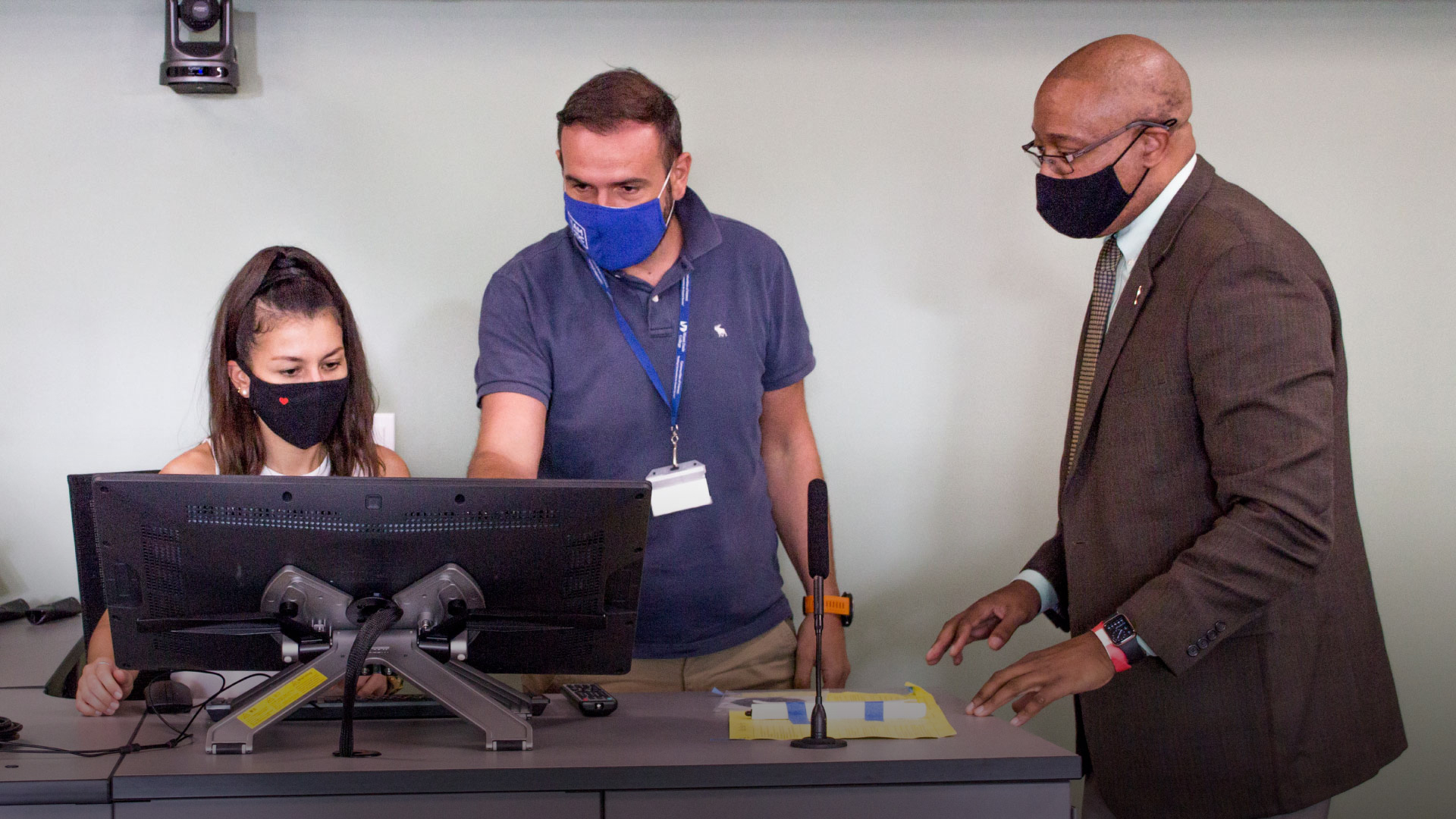MDC Online Enrollment Reports Substantial Growth During Coronavirus Pandemic
The coronavirus has severely impacted enrollment at colleges and universities all across the world.
Miami Dade College is no different, reporting a 12 ½ percent enrollment dip this fall compared to last year.
But MDC Online—not the same as remote learning—has managed to weather the storm.
It jumped from the fourth most credit hours enrolled last spring—behind Kendall, North, and Wolfson campuses—to second this summer and has remained second this fall, trailing only Kendall with 80,084 enrolled credit hours. That is a 34.2 percent increase compared to last fall.
“We hear student’s frustrations and fears all the time and it puts online education to be a key component for them during times like this,” said MDC’s Online Director of Student Services Hector Noriega. “These are students who are still pursuing their goals and passions despite a pandemic and that is the most admirable thing. So we just want to fill in that need.”
Online courses, which require students to pay a $15 per credit distance learning fee, differ from remote learning because they are strictly virtual, allow students to work independently around their schedule, and require no meeting time with a professor. Participation is graded based on whether students complete assignments by their deadline.
Online Expansion
Miami Dade College introduced online learning in 1997 through the Virtual College. Initially, it offered less than 10 general education courses that were taught fully online.
Twenty three years later, the College decided it was time to better align the program with contemporary trends in higher education. Over the years, the context of ‘virtual’ broadened to mean that learning is enhanced with computers, online programs, or software. On the other hand, ‘online’ learning includes online tools like an online curriculum, virtual space, or conferencing software.
This January, the Virtual College changed its name to MDC Online. A new logo was created this fall and promotional materials were posted around the eight campuses and MDC’s digital displays.

New leadership was also implemented. Walter McCollum, who spent the last 14 years at Walden University—an online school—started as campus vice president of MDC Online on June 22.
He envisions MDC Online having a bigger presence at the national and international levels, where they can provide access to online education to students outside of the eight campuses.
“I want to remove barriers that are precluding growth and innovation in the online space and increase partnerships to allow for more program and course offerings,” McCollum said.
An Option For All
MDC Online offers 79 associate in arts degrees, seven associate in science degrees, 21 college credit certificates, and a certificate of professional preparation (CPP) to prepare students with a bachelor’s degree for entry into professional occupations.
They also offer five bachelor’s degrees—information systems technology, nursing, public safety management, supervision and management, and supply chain management and 24/7 tutoring and support.
“Some institutions haven’t valued or given the full potential of online education,” McCollum said. “But when we look at the driving factors that are pushing universities to put more money towards online education, that puts us in a greater place to accelerate even far beyond than where we are now.”
Students from all eight campuses attend MDC Online. They tend to be older than the average MDC student—the average age of students at the campuses was 24 during the 2019-2020 academic year, but 26 for MDC Online.
“We are looking at new ways to be more innovative,” McCollum said. “Students are really passionate about education. They want to have different modalities, more flexibility and we just want to make sure we are more equipped to provide them with that space to continue learning.”

